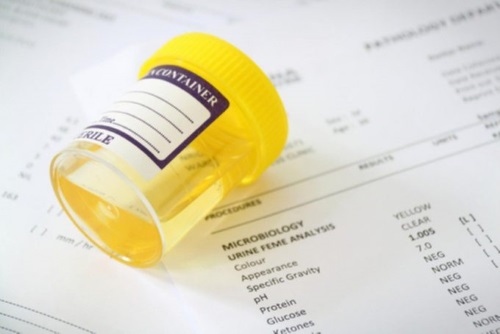best treatment for adhd in adults For ADHD in Adults
People doctors who treat adhd in adults near me suffer from ADHD may be more likely to suffer from other mental health issues such as depression or a substance use disorders. Treatments for these disorders can aid in improving the effectiveness of ADHD medication.
Psychotherapy can also include cognitive behavior therapy, which assists patients recognize and alter their thinking patterns. It also involves teaching coping strategies to manage symptoms.
Medication
If you’ve been diagnosed with ADHD medication can make a a big difference to the symptoms. Medication can improve concentration and reduce impulsive behavior. They also aid in learning and practicing new techniques. Your doctor will inform you the duration for which you should take the medicine. Most people with ADHD will receive a combination prescription and therapy. They aren’t an effective treatment for ADHD but they can help ease symptoms and make life much easier to manage.
Adults with ADHD are typically treated with stimulant medication. They boost brain activity areas that control attention and behavior. Methylphenidate is a popular stimulant that is prescribed for teens, adults, and children over the age of 5 with ADHD. It is available as tablets that are immediate-release (small doses taken between 2 and 3 times per day) or modified-release tablets (taken once a day in the morning, with the dose released throughout the day).
Certain stimulants can trigger side effects, such as less appetite or trouble sleeping, or an increase in blood pressure or heart rate. If these effects are troubling, you might be able to consult your doctor to adjust the dosage or the type of medication you’re taking.
Adults with ADHD are also able to take nonstimulant medications. These include atomoxetine and guanfacine. They increase the levels of neurotransmitters norepinephrine and dopamine in certain areas of the brain. These drugs can be effective in the event that stimulants fail to work or cause side effects you cannot tolerate.
Psychoeducation, or education on ADHD and how it affects you, can also be helpful. It can help you and your family members understand how to cope when your child or teenager is diagnosed with ADHD. There are also treatments for behavior that are beneficial. Parents and teachers may collaborate with a therapist to develop strategies to control the behavior. These strategies could include reward-based training and behavior management.
Therapy
Adults with ADHD might benefit from therapy to improve their everyday functioning. The disorder can cause difficulties at work or at school, like having a hard time remembering appointments, making impulsive decisions, or ignoring deadlines. Behavioral therapy helps people learn to manage these issues, and improves their relationships with family, friends members, and colleagues. Adults suffering from ADHD may require family and marriage therapy based on the severity of their symptoms.
Adults suffering from ADHD typically have significant co-occurring mental health issues, such as bipolar disorder, anxiety and psychoses. These conditions can affect the effectiveness of ADHD treatment and cause more adverse effects. For this reason, it is important to treat co-existing conditions before starting treatment for ADHD in adults. In general, co-existing conditions that are the most serious are treated first. Treatments for depression, like bupropion, can reduce symptoms of ADHD and improve the functioning of adults. Utilizing stimulants such as methylphenidate or amphetamines to treat ADHD can also help reduce the frequency and severity of depression in some adults.
Adults with ADHD are able to benefit from medication that increases concentration and reduces impulsivity. Medication cannot replace skill training and does not improve long-term effects of untreated adhd in adults ability to cope. Research has proven that a combination of medications and behavioral therapy is more effective than one alone.
 Cognitive-behavioral therapy teaches the ability to cope and assist people overcome negative thoughts that lead to negative behaviors. It also assists in identifying and change unproductive routines. Adults with ADHD tend to be demoralized after years of fighting. Cognitive-behavioral therapy aims to reverse this negative attitude and help them develop an optimistic outlook.
Cognitive-behavioral therapy teaches the ability to cope and assist people overcome negative thoughts that lead to negative behaviors. It also assists in identifying and change unproductive routines. Adults with ADHD tend to be demoralized after years of fighting. Cognitive-behavioral therapy aims to reverse this negative attitude and help them develop an optimistic outlook.
Behavioral coaching is a second type of therapy for adults with ADHD that focuses on practical solutions to everyday issues. In contrast to traditional therapists who assist people deal with emotional issues, a behavioural coach focuses on helping people create strategies to organize their work and home environments by organizing their schedules, prioritizing tasks, and managing their finances. Often they are employed by the person being treated for ADHD and work with them at home or by phone.
Life skills training
If you suffer from ADHD life can be overwhelming. It’s difficult to keep up with all your social and work obligations, let alone pay bills. The disorder can lead to impulsivity and inattention, which can make it difficult to function and maintain relationships. There are a variety of methods you can employ to improve your daily functioning. One strategy is to set achievable goals for yourself. Another option is to work on mindfulness. This can help you become aware of your feelings and behavior, to help you replace negative patterns with positive ones. Another approach is dialectical behavior therapy (DBT). DBT is a type of talk therapy which will help you manage your emotions and behaviors. It can be performed in either individual or group sessions.
To overcome your ADHD symptoms, you must first learn about the condition and its effects. It is also important to understand your own strengths and weaknesses. This will allow you to create an approach that is customized to your specific needs and challenges. It is essential to find a specialist that understands your condition and will work with you to identify your strengths and weaknesses.
Behavioral coaching is also helpful in addressing the issues of living with ADHD. Utilizing practical strategies, behavioral coaches can help you overcome obstacles to living a full and happy life. They can assist you in developing abilities that will allow you to achieve success in your job and at home. They can also help you with financial planning and self-care. They can also show you how to properly make use of medication.
Behavioral coaching can help you address negative thoughts and behaviors that are a cause of ADHD symptoms. These include thought distortions, which can result in feelings of low self-esteem and a feeling of insecurity. The purpose of behavioral coaching is to encourage self-efficacy and a sense of personal power in people with ADHD.
Making the effort to acquire life skills can help those with ADHD avoid the disappointment of not being able to meet their own standards. Learning to plan and avoiding procrastination can lead to increased productivity at work and in life. It can also help reduce the impulsive and reactive behavior and make it easier to get along with coworkers and friends.
Clinical trials
Adult ADHD can cause significant problems for both the person and their loved ones when it is not managed properly. This could include a lack of efficiency at work or school as well as poor performance in sports and social activities, strained relationships, substance abuse, and other health problems. It is essential to find an extensive adhd intrusive thoughts treatment program that includes counseling and medication to overcome these challenges. Fortunately, improved and new treatments have been developed recently to treat the disorder. These drugs can significantly improve a person’s quality of life. The most common medications are methylphenidate and amphetamines. They are available in both oral and injectable forms. These medications are effective in treating untreated adhd in female adults and can help people achieve a higher level of achievement in their personal and professional lives.
Many people with ADHD benefit from non-pharmacological treatments in addition to pharmacological alternative treatments for adhd. The number of non-pharmacologically unique trials is higher than the number of pharmacological unique trials (Figure 2A). However, the majority of these trials are still in exploratory phase and only a few have made it to the pivotal stage.
It is not clear if the presently available medication regimens for ADHD are effective for the general population. The majority of clinical trials do not include adults with comorbid psychopathology. This could reduce the external validity of these studies and prevent them from identifying the most effective treatment options for adults with ADHD.
The standard exclusion criteria for ADHD clinical trials excludes many people with the most severe psychiatric disorders and those at greatest risk of functional impairment. These individuals are likely to have more psychopathologies comorbid compared to the ADHD community sample groups that were examined in this study, but they were not eligible to take part in the clinical trials.
Since 2009 the number of clinical trials using medical devices to treat adults with ADHD has increased. This trend is continuing today despite the fact that most of the trials are still in the exploratory stage and haven’t yet reached the pivotal stage. The increased number of trials involving this method could be a reflection of the growing interest in using these medical devices to treat for people suffering from ADHD.




